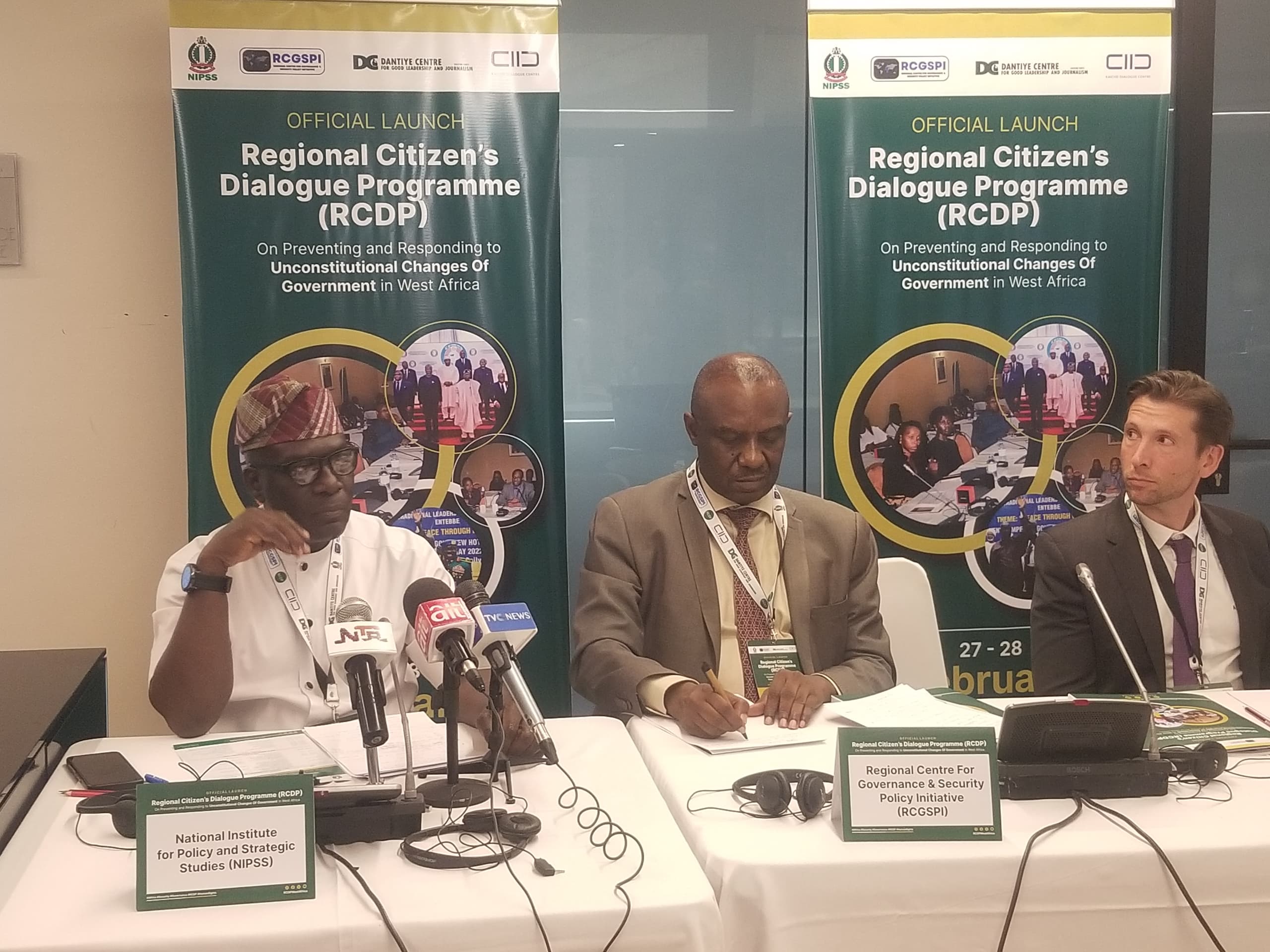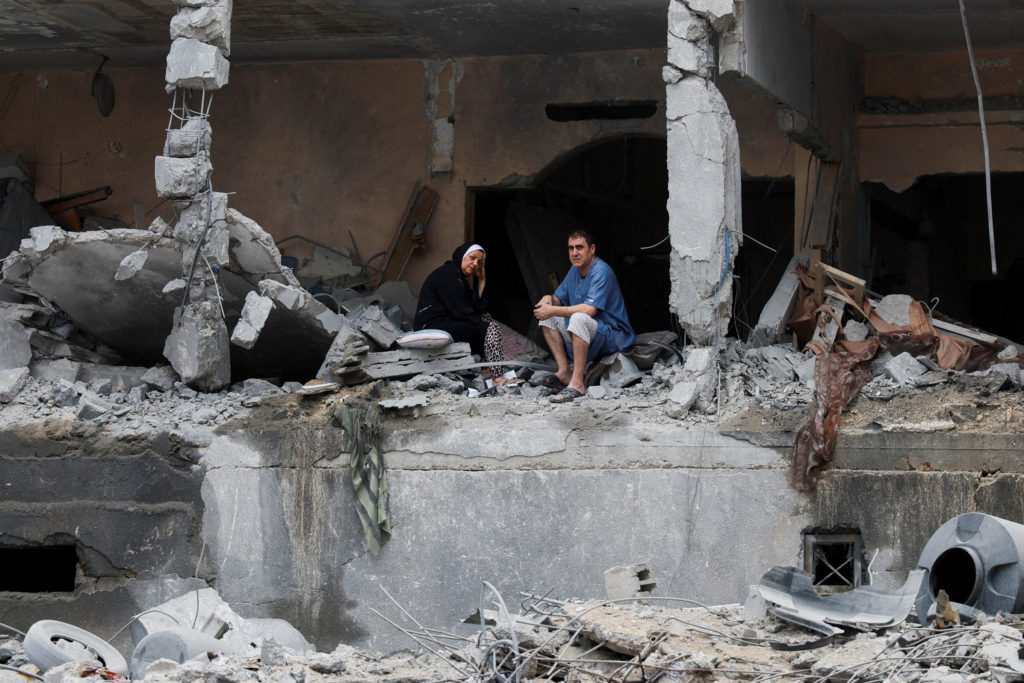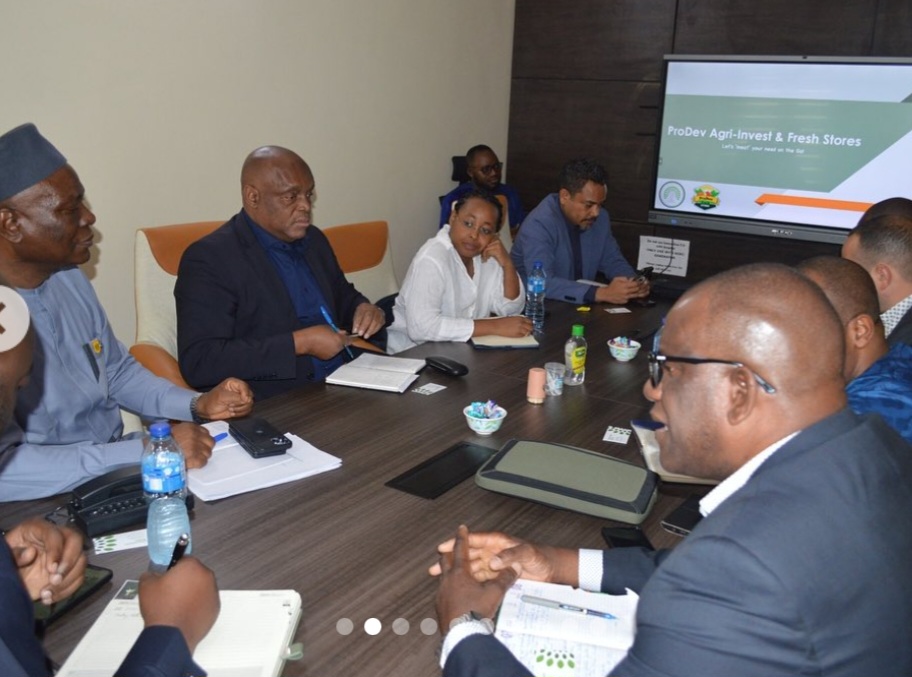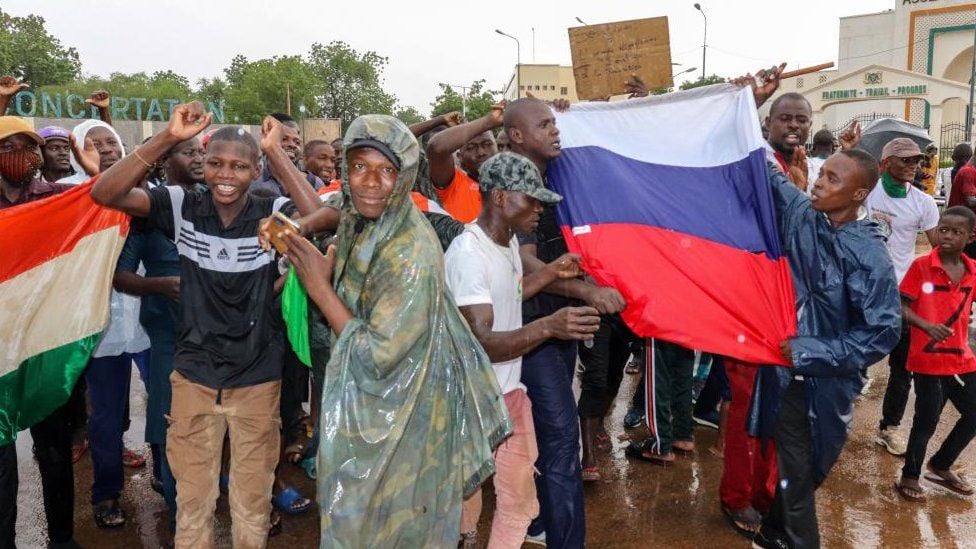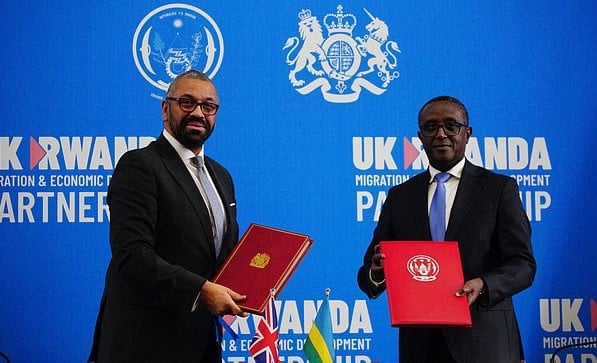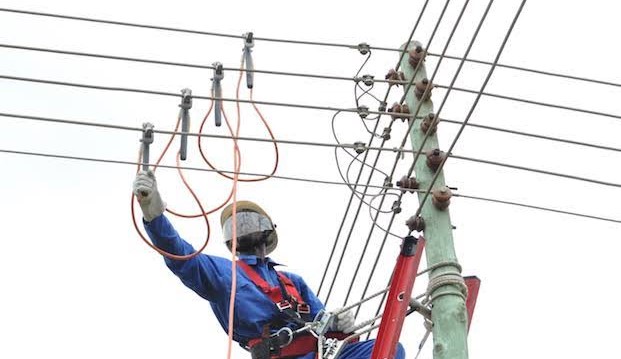A consortium of civil society organisations (CSOs) and the National Institute for Policy and Strategic Studies (NIPSS) have launched an initiative, the “Regional citizen’s dialogue programme (RCDP), for preventing and responding to unconstitutional changes of government in West Africa.
In a communique issued after the launch of the programme on Wednesday, the consortium said the initiative was necessitated by the recent surge in unconstitutional changes of government in the sub-region.
The group said unconstitutional changes of government pose a significant threat to the political stability and democratic progress in West Africa.
“This troubling trend, evidenced by military takeovers and the overthrow of democratically elected governments has cast a shadow over the achievements in democratisation, including the development of political and security institutions, electoral processes, and the safeguarding of freedoms and democratic rights amongst others,” the communique reads.
Advertisement
“Furthermore, this trend jeopardises regional and global efforts to combat terrorism and violent extremism in sub-regions like the Sahel and the Lake Chad Basin.
“The RCDP is an attempt by CSOs to support the operationalization of the AU Accra Declaration on Unconstitutional Changes of Government (UCG) in Africa (March 2022), and the Malabo Declaration on Terrorism and Unconstitutional Changes of Government in Africa, adopted at the 16th Extraordinary Session of the Assembly of the African Union Head of States on May 22, 2022.”
The consortium said education and continuous dialogue with local actors, stakeholders, and leaders is critical to promoting a shared vision of democracy in Africa.
Advertisement
It also called for the promotion of dialogue and diplomacy with countries in political transition.
The consortium further said recognising and harnessing the role of religious actors, traditional leaders, and the media can play an important role in changing the narrative and influencing attitudes towards entrenching democracy in Africa.
